Health is the most important value, which we wish for most often, in every possible circumstance. However, does the fact that we wish this for ourselves and others mean that we use good eating habits on a daily basis and consciously shape our good, healthy lifestyle? When children come into our lives, there comes responsibility for the health of the whole family, and often that’s when the good changes in food choices begin. For 10 months of the year, even more than 8 hours a day, our children spend time at school or kindergarten. Are we able to take care of what our children eat? Can we influence the quality and quantity of meals?
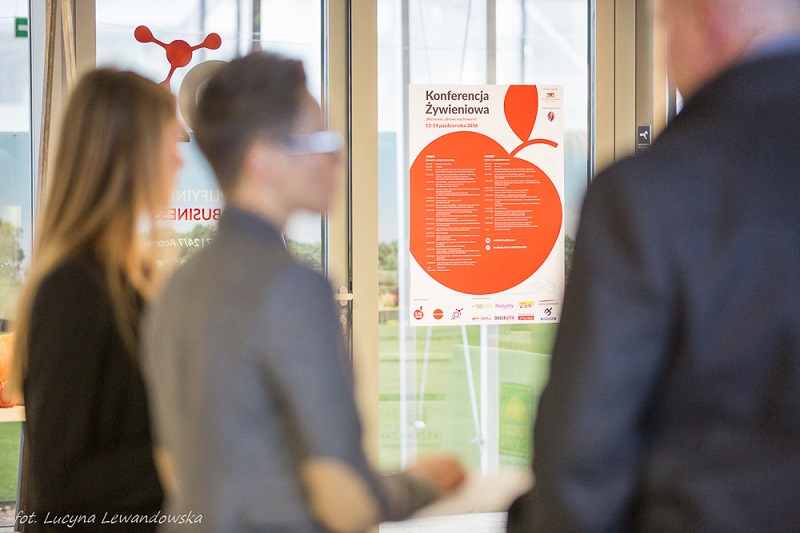 On 13-14 October 2016 in Gdansk, in Olivia Business Centre (O4 conference centre), a nationwide conference was held devoted to the proper development of a child in terms of three pillars: nutrition, mental health and physical activity. The balance of these three areas together gives a picture of a healthy and balanced development of the child.
On 13-14 October 2016 in Gdansk, in Olivia Business Centre (O4 conference centre), a nationwide conference was held devoted to the proper development of a child in terms of three pillars: nutrition, mental health and physical activity. The balance of these three areas together gives a picture of a healthy and balanced development of the child.
We invite you to talk to the author of the initiative, a community of people interested in making changes in the area of food and health in our homes, schools and kindergartens.
Monika Bogdanowicz: “To be healthy” – this slogan sets a goal that many people want and would like to achieve. However, do each of us nowadays treat them as a great challenge to be implemented? How much time do you spend thinking about food every day?
Edyta Poniatowska-Zaremba: It all depends on the stage of my life. There was a time when I ate everything and didn’t think about what I was eating. I grew up in a time when we didn’t commonly think we could divide food into: eco, unprocessed, fast food or processed. Only in the last 20 years have thousands of new products appeared. The most important thing is the price and the fact that my children eat it and that it is quickly available.
Nowadays I think about food quite often, it’s a kind of habit. In my case, I think on several levels, what to cook, what to buy, what is healthy, what is good for my family, but also at the level of my work. I’m still thinking about how to effectively educate, what tools will help to convey difficult content in an effective way. I mean parents, grandparents, children, education workers. And the topic is difficult, because here we are entering the area of psychology, and more precisely the change of habits. The process of changing habits can also arouse resentment, anger, and the feeling that someone is taking something away from me.
“We Think Healthy” is the idea of creating changes in the area of children’s health in the educational environment. Is it possible to teach children good habits if they do not have good examples in their day to day in the family environment? How and why did the topic of food become important in your life?
What I do now is largely due to the passion of my parents, they love the land, wherever they live, they always have to have a piece of land to cultivate. Even when they lived in a block of flats, our balcony looked like an allotment garden. With these situations in mind, I follow their example and grow kale on my balcony in autumn and winter, and tomatoes, strawberries and herbs in summer. For as long as I can remember, my family home has been baking bread, pickling cucumbers and cabbage for the winter, and making cold cuts. The second half of summer and autumn is a very intense time of mortars and preparations for winter. “We Think Healthy” is really a summary of my activities, putting them together. For the last few years I have been involved in nutrition education for children and adults, with time I have noticed that I am closer to the education of children. You could say that it started in a classic way for me, the arrival of my daughter into the world caused me to reevaluate many principles in my life. I began to observe the world even more closely, from a completely new perspective, especially since we were affected by allergies and food intolerances. My observations show that the most common impulse to change eating habits is primarily the illness of loved ones, less often the fear of illness in old age. It was the same for me. This is how the idea for such an activity was born for children and parents who want to change their food and lifestyle choices for the better.
Food today is very readily available, but let’s not delude ourselves that quality is the standard in our choices. Many stores compete for our attention with their price and diverse, rich offer. How do you organize your home shopping to make good health decisions and how much time does it take you to organize meals for yourself and your family each week?
To get to where we are now, we put in a lot of work as a family. It was a process. At the beginning, there was a decision that a change was needed and determination had to be added to it. However, it must be remembered that the implementation of such changes is a process, an evolution, not a revolution. And most importantly, we start with ourselves! At the beginning of the journey, it is worth assuming that the changes will last for some time, we are talking about even a few months of time. We assume that there will be days or even weeks when we will cook and behave in the old, proven way. The most important thing then is not to blame yourself, but to slowly return to your new lifestyle.
Currently, I organize my life in such a way that once a week I visit a bazaar with healthy food, I have reliable vendors there, I buy meat and dairy products there. In the summer and autumn, I also buy vegetables and use the resources of my parents’ garden. There was a time when I was involved in food cooperatives and once a week I was stocking up on an organic farm. When my daughter goes to school, she eats lunches on the spot, where they have good catering, so I’m calm about her meals. I generally try to prepare meals at home, but when I’m working intensively, it’s not always possible to take care of everything. And that’s what normal life looks like. The most important goal is to learn how to optimize the way you prepare food. If I know I won’t be able to make dinner, I buy it in the city, but I’m looking for good cuisine. At the moment, there really is a large availability of healthy snacks, meals, drinks. Yesterday in Wrzeszcz I found a big shelf with snacks: chia dessert, yoghurts, vegetable chips, green salads, carrots, fruit salads. Even gas stations are already offering healthy snacks. There really is a choice, the problem is that we don’t have time, we’re tired and we don’t want to make another effort. Because changing habits is an effort, and our brain is a master at creating habits, because it simply makes our lives easier in a world full of information.
Where exactly do you think the front line of the battle for our future is located, expressed in compulsive shopping and excessive consumption?
It all starts in our homes. Children imitate us, parents. They’re going to eat what we eat. Then, when they go to kindergarten, responsibility begins to dissipate. And that, unfortunately, results in bad choices. However, it must be added that there are many wonderful people in kindergartens who care about the quality of food and about the education of children in this area. It is important to reach those facilities that are unaware or need support, which is what the “Gdańsk-We eat healthily” program provides. Then the parents’ interest in children’s nutrition education decreases, and more social emphasis is placed on primary and secondary schools. But by then it is often too late. Schools should continue nutrition education, which should function as a standard in nurseries and kindergartens. I’m talking about practical classes, just counting how many fruits and vegetables you should eat and presenting a food pyramid is not enough. Children remember content through the emotions that accompany it, if something is boring, unpleasant they will not want to go back to it.
What do we need to change to make the health effect of habit changes visible and how much time is needed? “You are what you eat,” nutritionists urge. Surely these appeals still do not reach the general public?
It takes years to feel the effects of change. If we take care of our children now, the effects will be noticeable only in many years. And that’s the hardest part about change. It’s easier for us to get involved in something whose effects we can see right away. If someone tells us that your child will get sick as an adult, that’s an abstraction for us. On the other hand, if we look at the statistics of civilization diseases, they are frightening. It is said that our children’s generation will live about 10 years shorter. This appeals to some adults, but some people still do not see the seriousness of the problem.
How do you assess the nutritional awareness and daily practice of the eating habits of Poles?
According to the results of the survey, the nutritional awareness of Poles is high. Poles have a lot of knowledge about nutrition, I mean parents. They know what children should eat, what a healthy diet looks like. However, the problem is that these are only declarations, because most of the respondents did not put these principles into practice. And this begs the question, why is that? How can we, busy but aware of the importance of food, influence our children to eat healthily? Where exactly do we start this change in our families? Let’s at least start with this: one meal a day together. And you will see what miracles will begin to happen.
And can we allow food to be available quickly on our menu?
This question is often asked. My assumption is: 70% healthy eating, taking care of eating habits, unprocessed products, 30% other products (any, but within reason). Let’s remember that food is a basic part of our life, if we reduce it to the fact that we have to constantly control it, count it, read it, measure it, and we don’t feel pleasure, it will be difficult for us to put healthy eating into practice. Balance, consistency and joy in what we do are important!
What are your main recommendations for parents after the recently concluded II nutrition conference “Healthy Upbringing Challenge”?
Let’s spend more time with children, let’s cook together, let’s involve children in grocery shopping, let’s be an example for them.
“We Think Healthy” – a nationwide nutritional but also a group of people – a community that brings together experts in the field of dietetics, parents and people who want to have a real impact on the nutrition of school and preschool children. The event is co-created by the Macherki Association, which organizes workshops, meetings and conferences supporting social activities and the O4 space in Olivia Business Centre (Olivia Four). The program included presentations on the proper development of the child in terms of three pillars: nutrition, mental health and physical activity. The balance of these three areas together gives a picture of a healthy and balanced development of the child.
Mission statement: “We believe that healthy eating habits mean healthy and happy adults and a better society. By investing in healthy lifestyles for children, we are investing in a better future.”
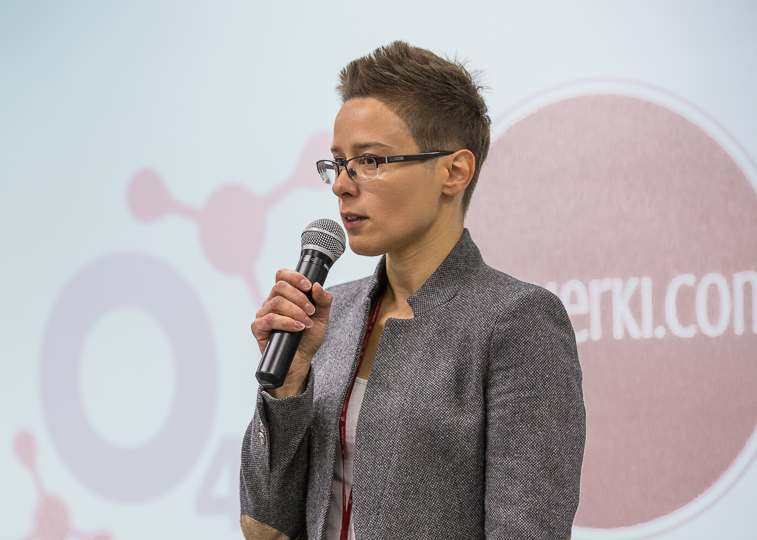 EDYTA PONIATOWSKA-ZAREMBA
EDYTA PONIATOWSKA-ZAREMBA
Originator and organizer of national nutrition conferences “Healthy Upbringing Challenge” and “Healthy Nutrition for Children and Youth”. In addition, he is the vice-president of the Macherki Association. A pedagogue and dietician by education. On a daily basis, he deals with consultations on Nutrition for children zdrowyprzedszkolak.org, conducts culinary workshops for children and parents. As a parent, she is active in the Healthy Nutrition of Little Pomeranians group. She is a co-creator of the “Gdańsk – We eat healthily” project, which aims to change the improvement of the quality of meals in school canteens in Gdańsk.
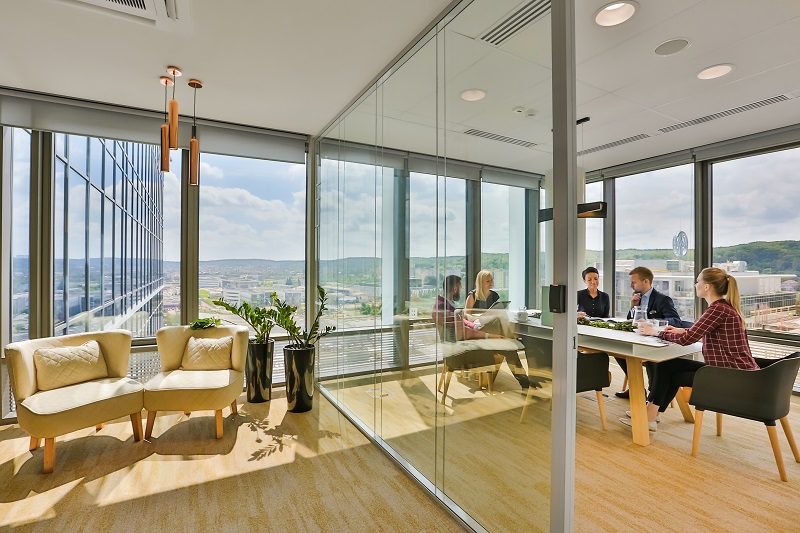 The Regional Pomeranian Chamber of Commerce (RIGP) is a local government economic organisation grouping now over 250 companies of various sizes, operating in the Provinces of Pomerania, West Pomerania, Warmia-Masuria, Kujawy-Pomerania and Wielkopolska. Its core tasks include representation of economic interests of its members, establishing cooperation and exchange of experiences with domestic and foreign business support organisations, development and dissemination of ethical business principles or providing opinions on the functioning of the economy to competent bodies and organisations.
The Regional Pomeranian Chamber of Commerce (RIGP) is a local government economic organisation grouping now over 250 companies of various sizes, operating in the Provinces of Pomerania, West Pomerania, Warmia-Masuria, Kujawy-Pomerania and Wielkopolska. Its core tasks include representation of economic interests of its members, establishing cooperation and exchange of experiences with domestic and foreign business support organisations, development and dissemination of ethical business principles or providing opinions on the functioning of the economy to competent bodies and organisations.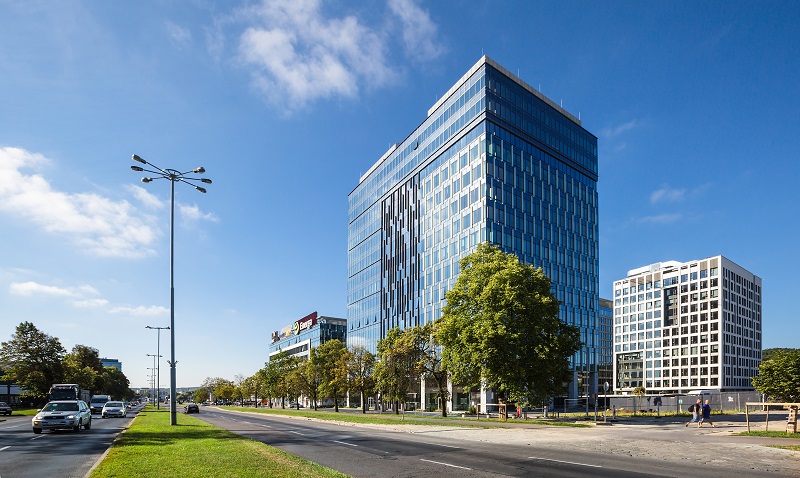

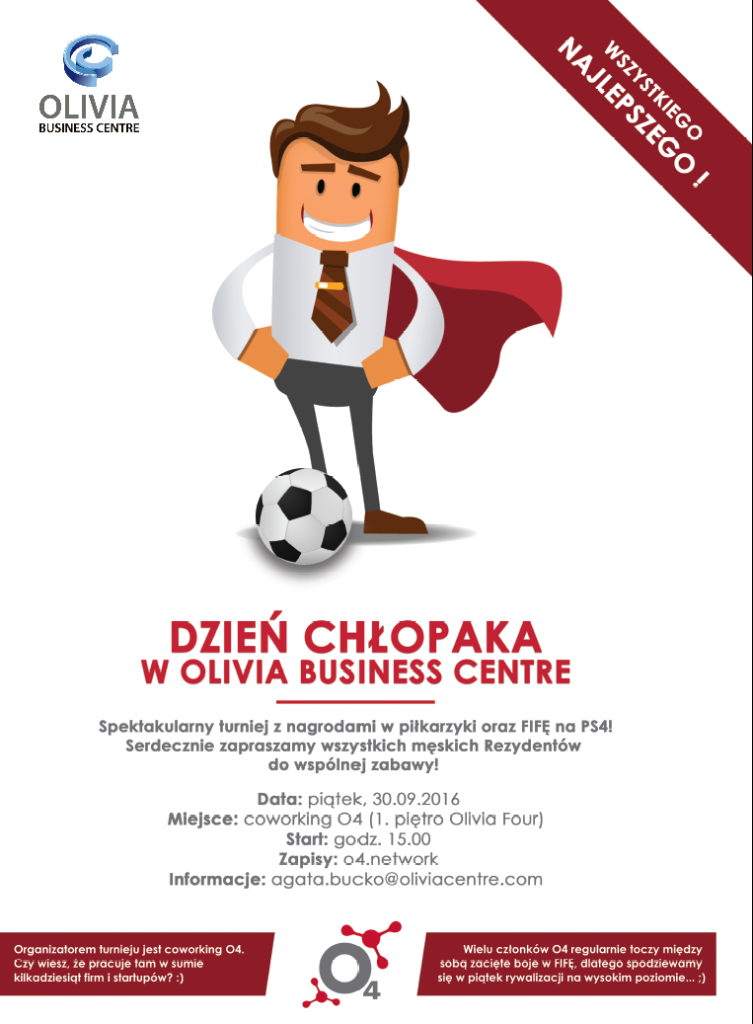 We cordially invite all male Residents to celebrate Boy’s Day! At 3 p.m., on the 1st floor of the O4 coworking space, there will be a one-of-a-kind table football tournament and FIFA on PS4. Interesting prizes await the winners. We encourage you to have fun with us!
We cordially invite all male Residents to celebrate Boy’s Day! At 3 p.m., on the 1st floor of the O4 coworking space, there will be a one-of-a-kind table football tournament and FIFA on PS4. Interesting prizes await the winners. We encourage you to have fun with us!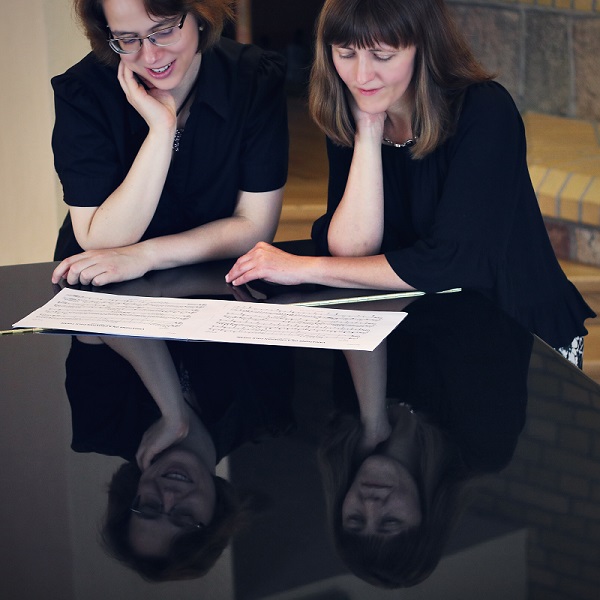 PIANO DUO – ANNA LISZEWSKA and ANNA MIKOLON
PIANO DUO – ANNA LISZEWSKA and ANNA MIKOLON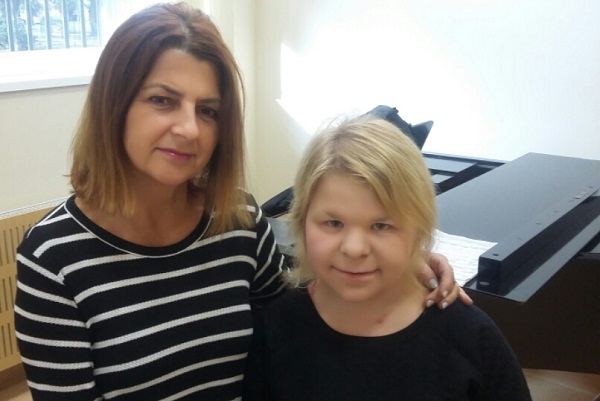 Sara Mocarska graduated from the State Music School. in Gdańsk-Orunia in the class of Krystyna Przybylińska-Zgaj, MA. During her studies, she was a laureate of many competitions (distinction at the 1st National Violin Competition in Grudziądz, 3rd and 2nd place at the Slavic Music Festivals in Tczew, 1st place at the 10th Sopot Violin Competition, 2nd place at the 11th Gdynia Violin Competition, 1st place at the 11th, 12th, 13th, 14th Oruń Violin Competition, 2nd place at the 1st National Violin Competition in Elbląg). Currently, she is a student of the Secondary Music School. in Gdańsk-Wrzeszcz in the class of the outstanding violinist and pedagogue Anna Śliwa. Despite her young age, she has already given concerts in Germany and Finland. Sara’s recent achievements include: fourth place at the National String Instrument Competition in Elbląg and third place at the First Violin Confrontations in Gdynia.
Sara Mocarska graduated from the State Music School. in Gdańsk-Orunia in the class of Krystyna Przybylińska-Zgaj, MA. During her studies, she was a laureate of many competitions (distinction at the 1st National Violin Competition in Grudziądz, 3rd and 2nd place at the Slavic Music Festivals in Tczew, 1st place at the 10th Sopot Violin Competition, 2nd place at the 11th Gdynia Violin Competition, 1st place at the 11th, 12th, 13th, 14th Oruń Violin Competition, 2nd place at the 1st National Violin Competition in Elbląg). Currently, she is a student of the Secondary Music School. in Gdańsk-Wrzeszcz in the class of the outstanding violinist and pedagogue Anna Śliwa. Despite her young age, she has already given concerts in Germany and Finland. Sara’s recent achievements include: fourth place at the National String Instrument Competition in Elbląg and third place at the First Violin Confrontations in Gdynia.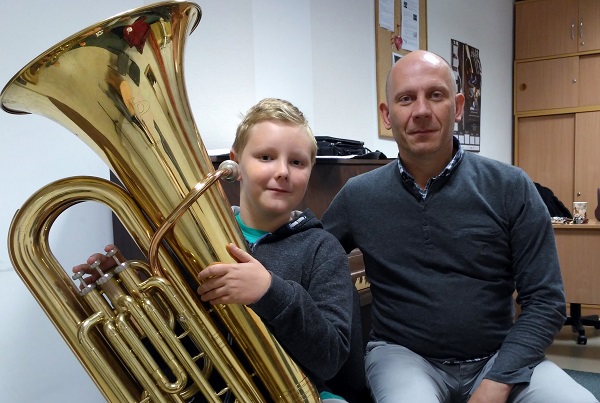 Beniamin Brzozowski was born in 2005 and as a child of musicians, from the beginning of his life he grew up surrounded by the sounds and sound of instruments. As a four-year-old, already showing musical talents, he announced without much hesitation that he intended to play the tuba in the near future. After reaching the age allowing him to learn, he began to learn to play the tuba, in the trombone and tuba class of the excellent musician and teacher Marek Sikora, M.A., at the Primary and Secondary Music School. Zygmunt Noskowski in Gdynia. At the moment, Beniamin is learning to play the tuba for the second year and is a laureate of the Young Sheet Music Competition “Szansa na sukces” in Gdynia, where students of Pomeranian music schools present their skills. In March 2016 he took part in the Regional Workshops for teachers and students of trombone and tuba classes in Kwidzyn, which were led by ace. Krzysztof Mucha from the Academy of Music in Poznań. He actively participates in school and community concerts as a soloist and chamber musician.
Beniamin Brzozowski was born in 2005 and as a child of musicians, from the beginning of his life he grew up surrounded by the sounds and sound of instruments. As a four-year-old, already showing musical talents, he announced without much hesitation that he intended to play the tuba in the near future. After reaching the age allowing him to learn, he began to learn to play the tuba, in the trombone and tuba class of the excellent musician and teacher Marek Sikora, M.A., at the Primary and Secondary Music School. Zygmunt Noskowski in Gdynia. At the moment, Beniamin is learning to play the tuba for the second year and is a laureate of the Young Sheet Music Competition “Szansa na sukces” in Gdynia, where students of Pomeranian music schools present their skills. In March 2016 he took part in the Regional Workshops for teachers and students of trombone and tuba classes in Kwidzyn, which were led by ace. Krzysztof Mucha from the Academy of Music in Poznań. He actively participates in school and community concerts as a soloist and chamber musician.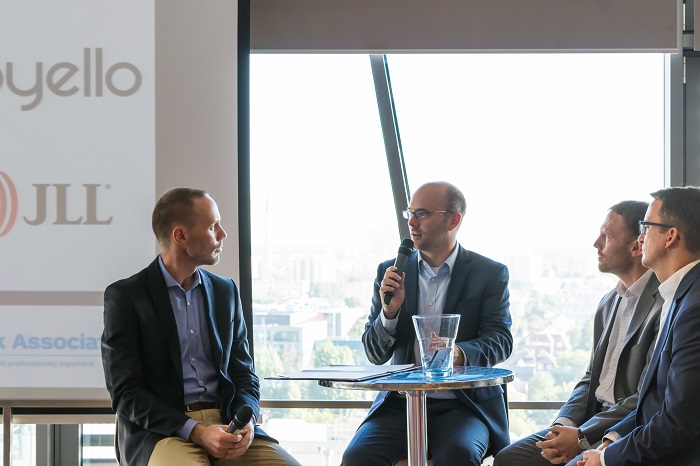 Monika Bogdanowicz (Olivia Business Centre): How did you come up with the idea of a series of events on effective communication in a dynamically changing work and business environment, and what are your goals in this project?
Monika Bogdanowicz (Olivia Business Centre): How did you come up with the idea of a series of events on effective communication in a dynamically changing work and business environment, and what are your goals in this project?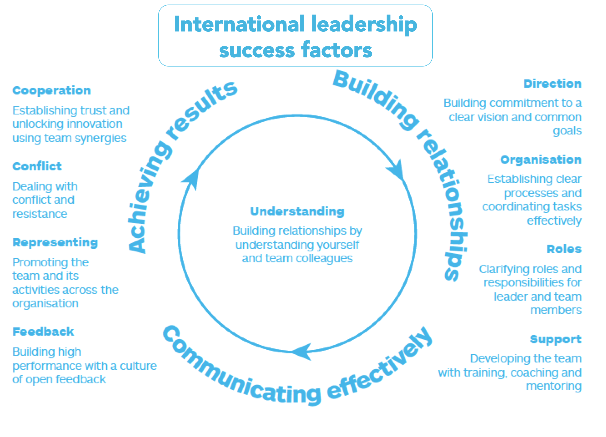
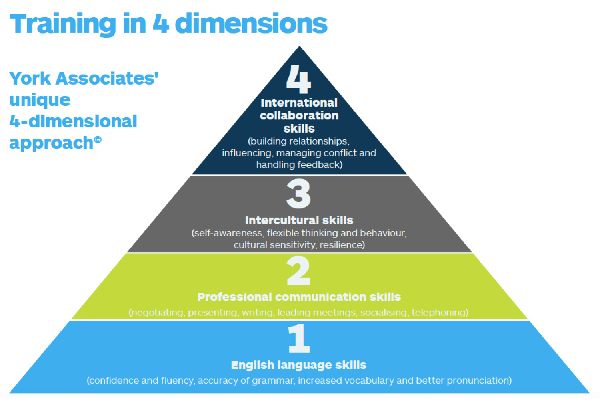
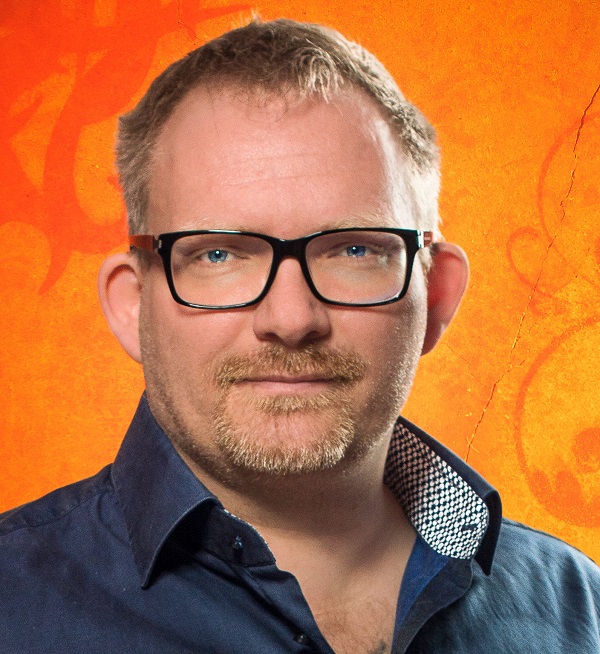 Maciej Dębski, PhD – founder and leader of the Foundation, sociologist of social problems, academic lecturer, social educator, expert in the implementation of scientific research, expert of the Supreme Audit Office, the Commissioner for Human Rights, Founder and President of the DBAM O MÓJ Z@SIĘG Foundation, author/co-author of strategic documents, local programs, originator of nationwide research in the field of phonoholism and the problem of cyberbullying carried out among 22,000 students and 3,500 teachers. In 2016, he implemented the first social experiment in Europe to cut off 100 people from all digital devices (mobile phones, tablets, Internet, online games, Playstation games, television) for 72 hours.
Maciej Dębski, PhD – founder and leader of the Foundation, sociologist of social problems, academic lecturer, social educator, expert in the implementation of scientific research, expert of the Supreme Audit Office, the Commissioner for Human Rights, Founder and President of the DBAM O MÓJ Z@SIĘG Foundation, author/co-author of strategic documents, local programs, originator of nationwide research in the field of phonoholism and the problem of cyberbullying carried out among 22,000 students and 3,500 teachers. In 2016, he implemented the first social experiment in Europe to cut off 100 people from all digital devices (mobile phones, tablets, Internet, online games, Playstation games, television) for 72 hours. On 13-14 October 2016 in Gdansk, in Olivia Business Centre (O4 conference centre), a nationwide conference was held devoted to the proper development of a child in terms of three pillars: nutrition, mental health and physical activity. The balance of these three areas together gives a picture of a healthy and balanced development of the child.
On 13-14 October 2016 in Gdansk, in Olivia Business Centre (O4 conference centre), a nationwide conference was held devoted to the proper development of a child in terms of three pillars: nutrition, mental health and physical activity. The balance of these three areas together gives a picture of a healthy and balanced development of the child. EDYTA PONIATOWSKA-ZAREMBA
EDYTA PONIATOWSKA-ZAREMBA